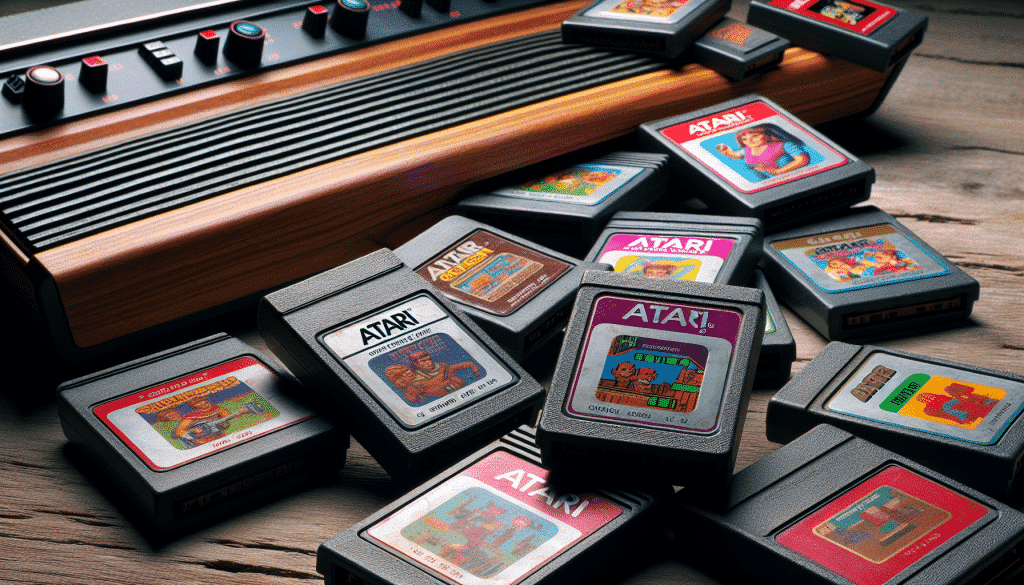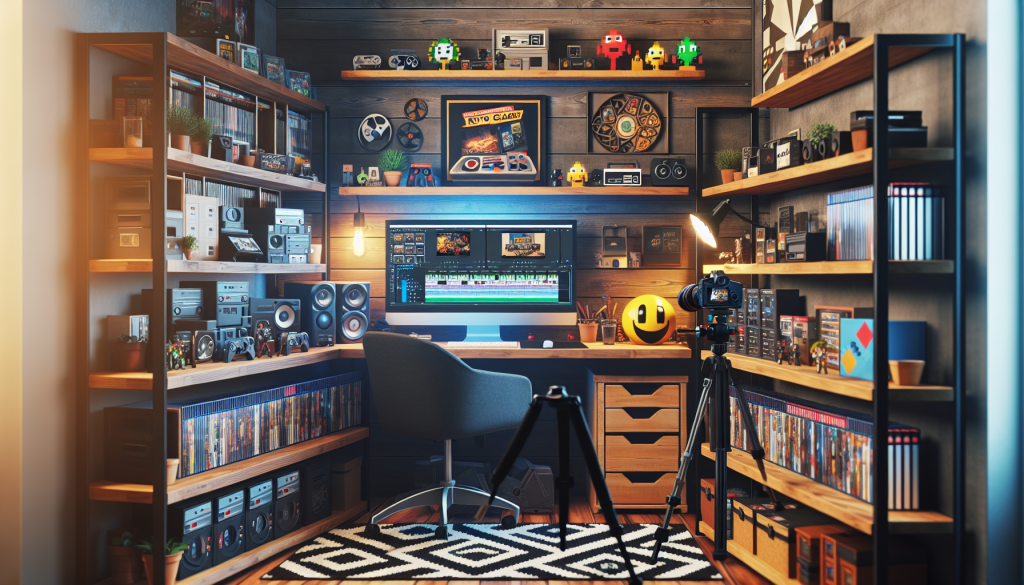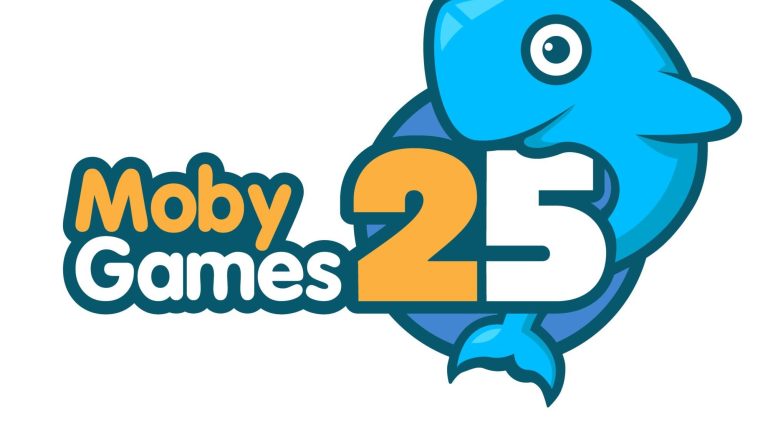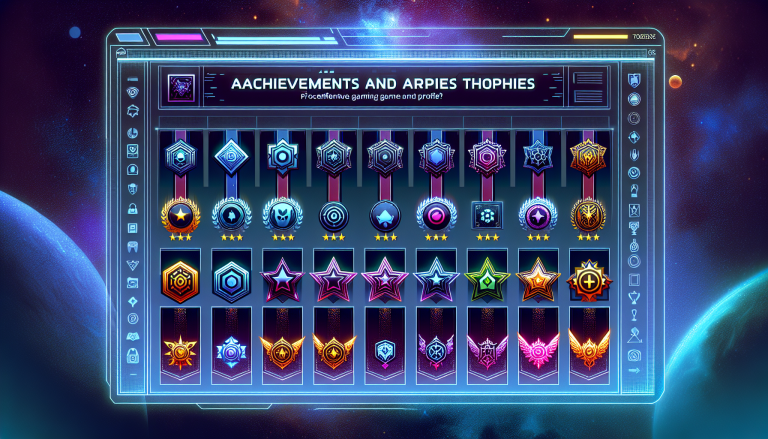Exploring the Positive Impact of Video Gaming on Mental Health
Video games, once considered just a fun pastime for teenagers, have started to emerge as a new frontier in mental health treatment and wellness. Let’s dive deeper into how these virtual worlds can actually help us in the real world.
The Power of Video Games
Video games can be a lot more than just a way to pass time. Some psychologists and mental health professionals are now recognizing the positive impact that gaming can have on mental health.
Cognitive Benefits
Firstly, video games can have cognitive benefits. Various studies have shown that gaming can improve problem-solving skills, spatial awareness, and even multitasking abilities. Games that require strategic thinking, like the popular Civilization series, can increase cognitive flexibility. Even action games like Call of Duty can improve reaction times and hand-eye coordination.
- Improved problem-solving: Games often require players to think critically and make quick decisions, improving their problem-solving skills.
- Increased cognitive flexibility: Strategy games can help players become more mentally agile as they must continually adapt their strategies.
- Better hand-eye coordination: Action games can improve reaction times and coordination, which translates well into real-world skills.
Emotional and Social Benefits
But the benefits aren’t just cognitive. Video games can also provide emotional and social benefits. For example, multiplayer games allow people to socialize and work together towards a common goal. This can be especially beneficial for people who struggle with social anxiety or who have difficulty forming social connections in person. Games can offer a safe and controlled environment for people to interact and form relationships.
- Social engagement: Online multiplayer games provide opportunities for social interaction, helping to reduce feelings of isolation.
- Reduced anxiety: Games provide a distracting, engaging activity that can help reduce feelings of stress and anxiety.
- Improved mood: The sense of accomplishment from beating a level or improving skills can boost players’ mood and self-esteem.
Interactive Therapeutic Tool
Given these benefits, video games are increasingly being used as an interactive therapeutic tool in mental health treatment. Research has shown that video games can be used to help individuals manage symptoms of mental health conditions such as depression and anxiety. Games designed for therapeutic purposes can help users practice mindfulness, improve their mood, and even reduce symptoms of post-traumatic stress disorder (PTSD).
So, next time you pick up the controller, remember that you’re not just having fun – you might also be boosting your brain power and emotional well-being!
As we’ve seen, video games can indeed have a positive impact on mental health. But like anything else, moderation is key. As we move forward, we’ll delve into the potential risks associated with excessive gaming, and finally, discuss how to find that crucial balance while enjoying video games.
The Potential Risks: Video Gaming and Mental Health Disorders
The world of video gaming can be an exciting escape, full of thrilling adventures and fascinating characters. However, like with any form of entertainment, it’s essential to be aware of the potential risks associated with excessive gaming. Let’s delve into some of the concerns that video gaming may pose for mental health.
Excessive Gaming and Its Implications
Who doesn’t love a good video game session, right? But what happens when the occasional gaming stint turns into a habitual escape? Chronic gamers sometimes find themselves grappling with gaming disorder, a condition recognized by the World Health Organization, characterized by a loss of control over gaming and giving it precedence over other daily activities and interests.
Impact on Social Skills
Video games aren’t inherently negative. They can be a fun way to unwind and can even help develop various skills. However, for those who spend too much time gaming, there’s a risk of social isolation. This can sometimes lead to a decrease in real-life social skills, causing difficulties in interpersonal relationships.
- Depression: A study published in the Journal of Pediatrics found an association between excessive gaming and an increased risk of depression among adolescents.
- Anxiety: Spending a lot of time in the virtual world of video games can sometimes exacerbate feelings of anxiety, especially for those who already have an anxiety disorder.
- Insomnia: One more concern is the impact of excessive gaming on sleep patterns. Intense gaming sessions, especially late into the night, can lead to insomnia and other sleep disorders.
Overcoming the Risks
It’s not all doom and gloom, though! Awareness of these potential risks is the first step in mitigating them. Some ways to keep gaming fun and healthy include setting time limits for gaming, balancing gaming with other social activities, and seeking professional help if gaming starts to interfere with daily life.
The Role of Moderation: Finding a Balance in Video Gaming
Video gaming is like a double-edged sword. On one side, it can be a fun, engaging, and rewarding hobby. On the other side, without proper balance, it could potentially lead to unhealthy habits and mental health issues. The key, then, is finding that sweet spot – that perfect balance between enjoyment and excess.
Why is Moderation Important?
Just like with everything in life, too much of anything can be harmful. This principle applies squarely to video gaming as well. Spending excessive amounts of time playing video games can lead to a range of issues including eye strain, sleep deprivation, poor nutrition, and decreased physical activity. Moreover, it can rob us of time that could be spent on other important aspects of life such as work, studies, family, and friends.
Striking a Balance
Finding a balance in video gaming doesn’t mean you have to give up on your favourite pastime. It’s all about managing your time and setting healthy boundaries. Here are a few tips to help you keep your gaming habits in check:
- Set a gaming schedule: Allocate specific time slots for gaming and stick to them. This could be a couple of hours after work or school, on weekends, or any time that doesn’t interfere with your daily responsibilities.
- Take regular breaks: Sitting in front of a screen for long periods is not only bad for your eyes, but it also increases the risk of various physical health issues. Make sure to take regular breaks, stretch, and move around.
- Eat and drink healthily: It’s easy to lose track of time and forget to eat or drink while gaming. Keep water and healthy snacks within reach to stay hydrated and energized.
- Maintain social connections: Video gaming can be a solitary activity, but it’s important to maintain social connections outside of the gaming world. Spend time with family and friends, engage in social activities, and keep communication lines open.
Remember, moderation is all about balance. Gaming should be a part of your life, not consume it. By practicing these tips, you can enjoy the benefits of gaming while minimizing potential risks.
Expert Advice
Leading health organizations, including the World Health Organization, acknowledge the potential risks associated with excessive video gaming. They recommend maintaining a healthy balance between gaming and other everyday activities. They also emphasize that gaming should never interfere with sleep, physical activity, or other necessary daily functions.
As a gamer, it’s crucial to be aware of these risks and take proactive steps to ensure a balanced and healthy lifestyle. This way, you can continue to enjoy gaming while living a well-rounded life.
Research Findings: The Complex Interplay between Video Gaming and Mental Health
When we say that the relationship between video gaming and mental health is complex, we’re not just throwing around fancy words. There are numerous research studies that have been conducted in this area with fascinating results, some of which we’ll delve into below. Remember, understanding this complex interplay may help us harness the positive aspects of gaming while mitigating its potential risks.
The Good: Gaming as a Stress Reliever
There have been several studies that suggest video gaming can act as a stress reliever. A study conducted by researchers at the Radboud University in the Netherlands found that video games can help reduce anxiety and boost mood. Participants who played a video game after a stressful task showed lower stress hormone levels than those who did not. Fascinating, isn’t it?
The Not-So-Good: Gaming and Addiction
On the other hand, there are studies that suggest excessive gaming can lead to problems such as addiction. The World Health Organization (WHO), for instance, officially recognized ‘gaming disorder’ as a mental health condition in 2018. It’s defined as a pattern of gaming behaviour characterized by impaired control over gaming, increasing priority given to gaming over other activities and continuation of gaming despite negative consequences. So, while gaming can be a great stress buster, it’s crucial to keep a check on the hours spent in front of the screen.
The Gray Area: Interpretation and Personal Factors
Now, here’s where things get really interesting. A recent study by Oxford University found that there is no straightforward link between the amount of time spent gaming and mental well-being. The study stated that how people feel about their own gaming experiences and the context of those experiences could be more important contributors to mental health than mere time spent gaming. This brings us to the understanding that mental health outcomes from gaming are not just black and white, but a myriad of grays.
It’s also important to remember that personal factors play a role too. Depending on an individual’s personal and psychological circumstances, the same amount of gaming could have different effects. So, it’s not just about gaming, but about who is doing the gaming and under what circumstances.
In conclusion, the relationship between video gaming and mental health is far from simple. So, the next time you pick up that controller, remember to enjoy the game but also stay aware of your mental well-being!












